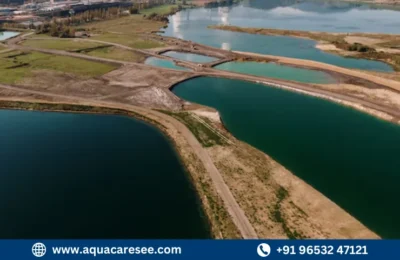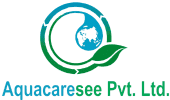Sewage Treatment Plants (STP) and their Maintenance

Introduction: Sewage Treatment Plants
Water is a vital resource, and managing wastewater efficiently is crucial for sustainability. With the increasing demand for clean water and the growing environmental concerns, treating sewage and wastewater effectively has become a priority for industries, municipalities, and residential areas. Sewage Treatment Plants (STPs) play a significant role in ensuring that wastewater is treated properly before being safely discharged or reused.
Aquacaresee Pvt. Ltd., established in 2006, has been a pioneer in water treatment solutions, offering advanced STP systems, wastewater management, and RO plants. Sewage Treatment Plants (STP) and their Maintenance. With cutting-edge technology and expertise in the field, Aquacaresee Pvt. Ltd. provides customized wastewater treatment solutions that help industries and communities manage water sustainably.
About Aquacaresee Pvt. Ltd.
Aquacaresee Pvt. Ltd. is a well-known company in India that specializes in water treatment solutions. The company was started in 2006 and has been working for more than 18 years to help clean and manage wastewater.
They provide different services like water filtration, wastewater management, and reverse osmosis (RO) plant solutions. Their sewage treatment plants help industries, businesses, and homes treat wastewater properly to keep the environment clean.
What is a Sewage Treatment Plant (STP)?
A Sewage Treatment Plant (STP) is a specialized facility designed to remove contaminants from wastewater, primarily from household, industrial, and commercial sewage. It utilizes biological, chemical, and physical processes to treat wastewater, ensuring that the treated effluent is environmentally safe and suitable for disposal or reuse.
By effectively treating wastewater, STPs help prevent water pollution, protect aquatic ecosystems, and contribute to public health and hygiene.
Key Functions of STPs
- Removal of solid and organic waste: Separates and breaks down solid and organic matter, ensuring cleaner effluent.
- Reduction of harmful pathogens: eliminates bacteria, viruses, and other pathogens through biological and chemical treatments.
- Recycling water for reuse: treated water can be reused for industrial processes, irrigation, and even potable purposes in some cases.
- Compliance with environmental regulations: meets legal standards for wastewater treatment and discharge to protect the environment and public health.
Types of Sewage Treatment Plants
- Activated Sludge Process (ASP)
A widely used biological treatment process that employs aeration and microorganisms to break down organic matter in wastewater. - Membrane Bioreactor (MBR)
Combines membrane filtration with biological treatment, providing high-quality treated water suitable for reuse. - Sequential Batch Reactor (SBR)
A batch process that treats wastewater in cycles, optimizing efficiency and flexibility in treatment. - Moving Bed Biofilm Reactor (MBBR)
Uses biofilm technology to enhance biological wastewater treatment, improving the breakdown of organic pollutants. - Rotating Biological Contactor (RBC)
Uses rotating discs coated with microorganisms to remove contaminants from sewage, enhancing treatment efficiency.
Stages of Sewage Treatment
- Preliminary Treatment
Removal of large debris such as plastics, rags, and grit to protect downstream equipment from damage. - Primary Treatment
Sedimentation process to separate solids from wastewater, followed by sludge removal and primary filtration. - Secondary Treatment
Biological treatment using microorganisms to degrade organic waste; aeration tanks and biofiltration methods enhance efficiency. - Tertiary Treatment
Advanced filtration, disinfection, and nutrient removal to ensure high-quality treated water suitable for reuse or safe discharge.
Why Choose Aquacaresee Pvt. Ltd. for STP Solutions?
With over 18 years of experience, Aquacaresee Pvt. Ltd. specializes in cutting-edge wastewater management solutions. Their expertise includes:
- Customized STP design and installation
- Advanced RO plant solutions
- Sustainable filtration technologies
- Maintenance and after-sales support
STP Maintenance: Best Practices for Efficiency
Regular maintenance is essential for optimal STP performance. Here are some key maintenance practices:
- Regular Inspection and Cleaning
Check for blockages and sludge accumulation; clean screens and aeration tanks periodically. - Monitor Biological Processes
Ensure proper microbial activity for effective treatment; avoid excessive chemical use that may harm bacteria. - Sludge Management
Remove excess sludge to prevent system overload; use sludge for composting or biogas production. - Equipment Maintenance
Regularly service pumps, blowers, and motors; replace damaged components promptly. - Water Quality Testing
Conduct routine water quality analysis to meet environmental standards; adjust treatment parameters based on test results.
Common Challenges in STP Operations
- Clogging and Blockages
Caused by debris, grease, and non-biodegradable waste; prevented by regular cleaning and maintenance. - Foul Odor Issues
Due to anaerobic decomposition of organic matter; controlled by proper aeration and odor management techniques. - Mechanical Failures
Pumps, blowers, and motors require periodic maintenance; preventive measures help avoid costly breakdowns. - Compliance with Environmental Regulations
Regular testing ensures adherence to discharge standards; proper documentation and record-keeping are essential.
Future Trends in Sewage Treatment
- Smart STP Systems
Integration of IoT and AI for real-time monitoring; automated adjustments for optimized performance. - Energy-Efficient Treatment Processes
Use of renewable energy sources such as solar power; energy recovery from wastewater treatment. - Sustainable Water Reuse Initiatives
Adoption of water recycling in industries and residential communities; advanced filtration methods for potable reuse.
Safety Measures in STP Operations
- Personal Protective Equipment (PPE)
Workers should wear gloves, masks, and protective clothing to reduce exposure to harmful contaminants. - Safe Handling of Chemicals
Use only recommended chemicals in appropriate quantities; proper storage and labeling to prevent accidents. - Emergency Response Plan
Implement emergency shutdown protocols; train staff for handling leaks, spills, or system failures. - Regular Training Programs
Educate operators on new technologies and best practices; ensure compliance with health and safety regulations.
Choosing the Right STP for Your Needs
- Capacity Requirements: Based on daily wastewater generation.
- Space Availability: The STP size should fit within the allocated space.
- Budget Constraints: Cost-effective solutions with long-term benefits.
- Regulatory Compliance: Ensures adherence to local laws and policies.

Aquacaresee Pvt. Ltd.: A Trusted Partner in Water Treatment
Aquacaresee Pvt. Ltd. has been at the forefront of water treatment solutions since 2006, offering:
- High-efficiency STP installations
- Comprehensive wastewater management services
- Advanced RO plant and filtration technologies
- Expert consultation for industrial and commercial sectors
Frequently Asked Questions (FAQ)
Q1. What is the purpose of a Sewage Treatment Plant (STP)?
Ans: An STP removes contaminants from wastewater, making it safe for disposal or reuse. It ensures environmental protection, regulatory compliance, and water conservation.
Q2. How does an STP work?
Ans: An STP processes wastewater through multiple stages: preliminary treatment (debris removal), primary treatment (sedimentation), secondary treatment (biological processing), and tertiary treatment (advanced filtration and disinfection).
Q3. How often should an STP be maintained?
Ans: Regular maintenance should be performed monthly, with thorough inspections and cleaning at least every three to six months. Components like sludge tanks and filters should be cleaned periodically to ensure efficiency.
Contact Us
At Aquacaresee Pvt. Ltd., we are committed to providing high-quality wastewater treatment solutions tailored to your needs. If you have any questions or want to learn more about our services, please feel free to get in touch with us.
- Phone: + 91 – 96532 47121
- Email: marketing@aquacaresee.com
- Website: www.aquacaresee.com
Conclusion
Investing in a reliable Sewage Treatment Plant and ensuring proper maintenance is vital for sustainable wastewater management. Aquacaresee Pvt. Ltd., with its 18+ years of expertise, is the perfect partner for innovative and eco-friendly water treatment solutions.



